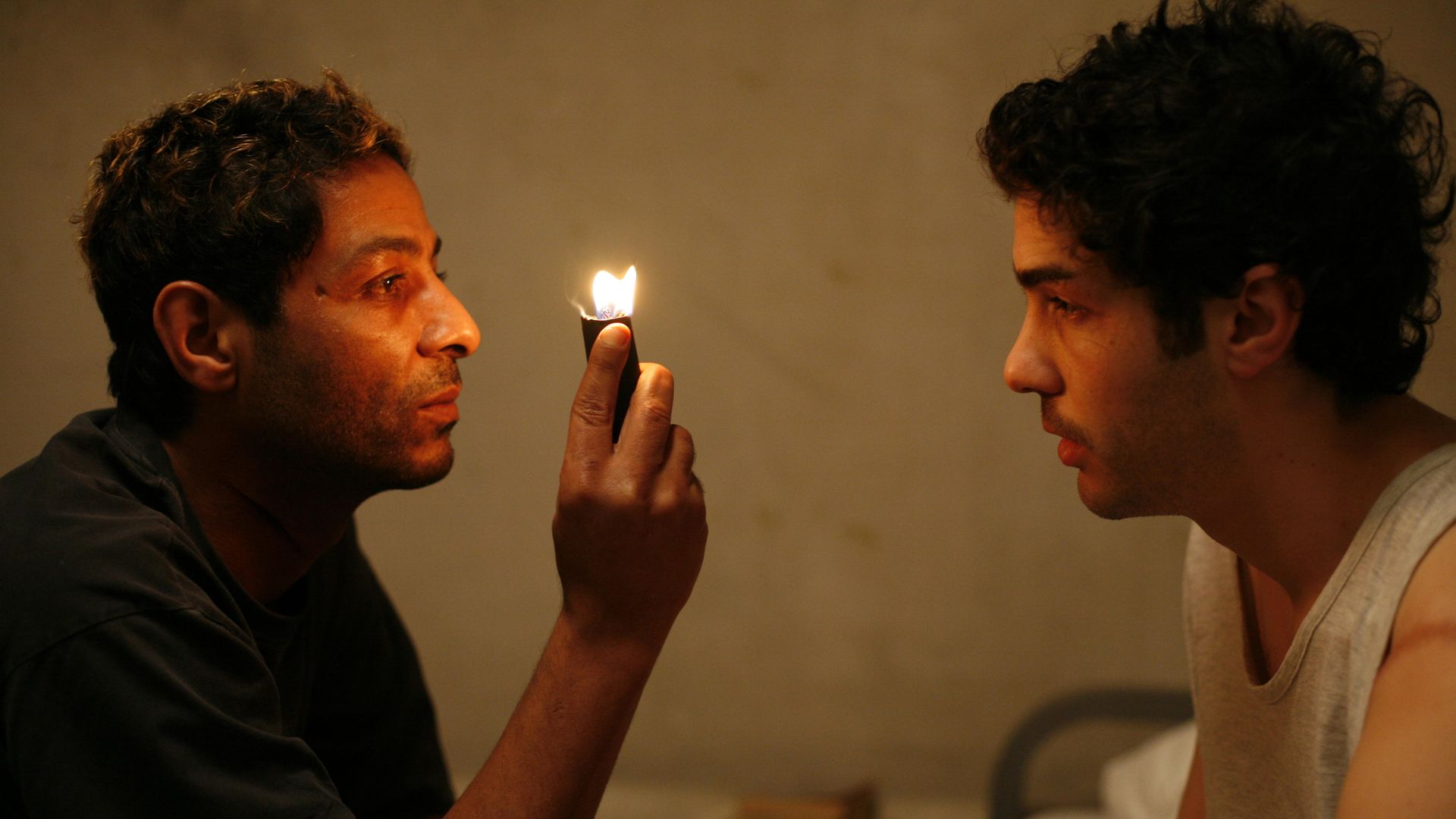Attempting to compile a list of the 50 Greatest European Films, I immediately felt compelled to subvert the canon, just a bit.
But for all its history, range of subjects and languages, European cinema simply isn’t very diverse in terms of behind-the-camera talent. I’ve tried, at least, to bring female film-makers to the fore so as not to continue the tradition of overlooking their talents and their stories. I’ve tried to focus, too, on stories about people of colour (the UK would lead the way on this, but we’ve mainly excluded British films).
Sadly, it is war that is the defining topic and characteristic of European cinema, the reverberations felt across the continent from two World Wars, to the ensuing Cold War and Iron Curtain, to the factions between and within shifting borders, old and new. The impact of post-colonial legacies and waves of immigration are next, closely followed by a struggle to reconcile ancient traditions with the demands of a modernising, globalising world. All of these themes feed into the films on this list which, I admit, skews more to the last 50 years than the previous 70.
The familiar European auteurs – Godard, Truffaut, Fellini, Almodovar, Haneke – have also been brutally limited to just one apiece, and I’ve tried to give as broad a look-in as possible to some of the less familiar European film making nations and talents, although as you might expect French cinema still dominates, with the Germans, Italians and Scandinavians in its wake.
All lists necessarily reflect the taste and character of the compiler, so this one comes with the caveat that they’re also 50 films that I have actually seen and which reflect somehow on Europe as a concept or a character. However, all of the films chosen have had some kind of acknowledgement of quality, not just from me, but from established European film festivals and awards bodies as well as general critical reassessments and support that make them valid, if disputed, inclusions.
Some on here, you’ll be wearily familiar with; others you’ll have heard of but – go on, admit it – have never seen; and hopefully, there are 10 or more that you’ve not seen, not heard of and might be inspired to try.
The order, too, is a deliberate though hopefully not obtuse reworking of traditional hierarchies. Greatness is dependent on many things, including longevity and the ability to continue appealing to several generations, as well as breaking new ground at the time – visually or politically and thematically – and having a lasting influence on cinematic culture, style and iconography thereafter.
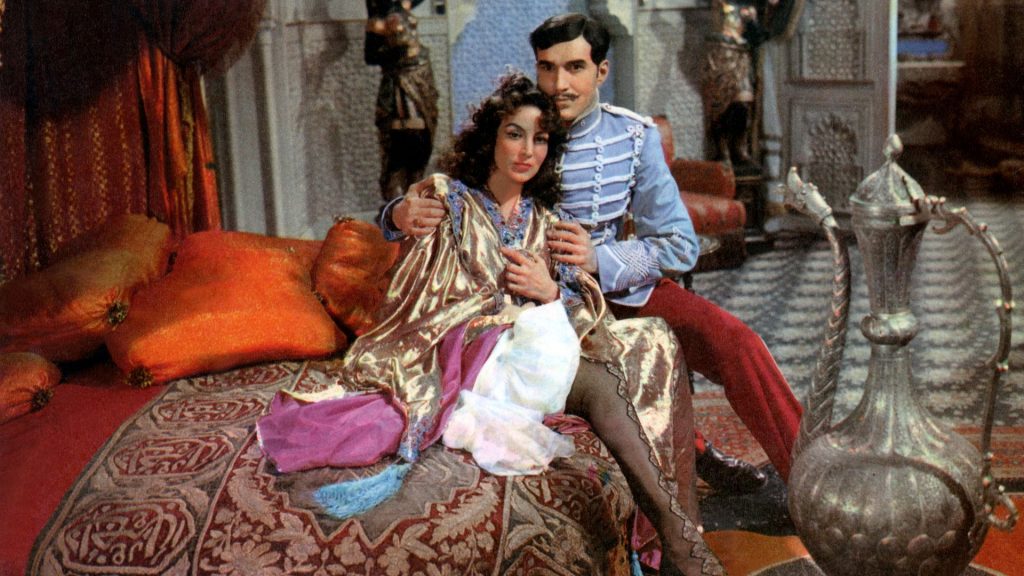
50 French Cancan (1955) Glorious, late-period Jean Renoir showbiz triumph with Jean Gabin establishing the Moulin Rouge in 1890s Montmartre. Looks like an impressionist painting, with moving legs.
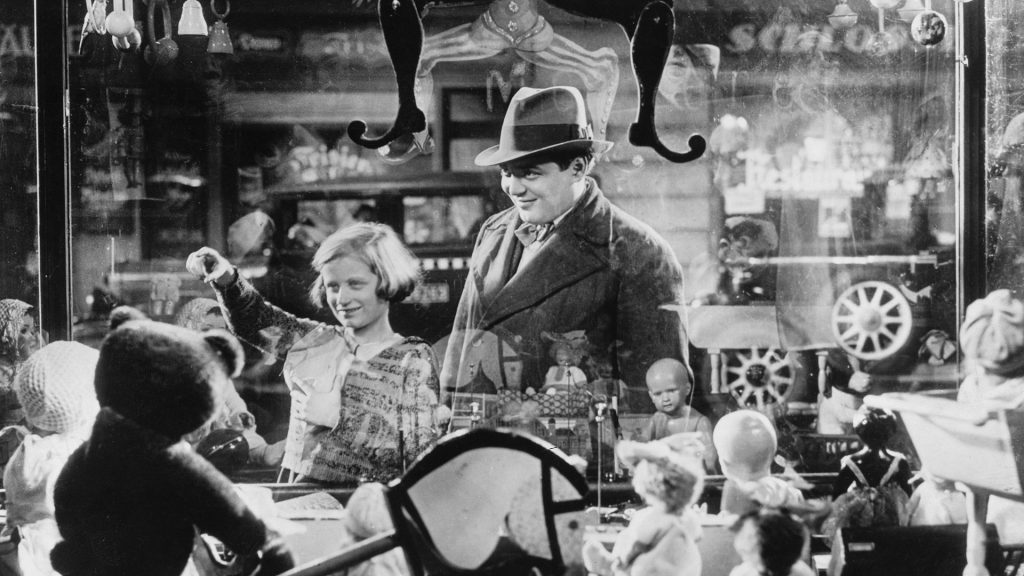
49 M (1931) Fritz Lang’s classic crime film follows Peter Lorre’s paedophile serial killer through the Berlin shadows, the police and the gangs on his tail. Set the template for a thousand procedurals.
48 Atlantics (2019) A unique and subtly mysterious Senegalese ghost story about modern colonialism, migrant exodus and the loneliness left behind. Mati Diop became the first black female director ever in Cannes competition. And won the Grand Prix.
47 Day for Night (1973) Ah, here’s Truffaut, with a farcical, sunlit homage to movie-making, set in Nice among fevered film folk, including a luminous Jacqueline Bisset and the director himself, playing a director. Its artifice angered Godard (always a good thing) and the doyens of the Nouvelle Vague never spoke again.
46 120 BPM (2017) Robin Campillo’s drama revealed the attitude to AIDS in a 1990s Paris (and Europe) that wished to ignore it. A call to activism and humanity, with ecstatic highs of solidarity and crushing lows of loneliness.
45 Son of Saul (2015) Hungarian cinema wrestled with its past in this extraordinary, relentless Holocaust movie from Laszlo Nemes, set amid Sonderkommando in the death furnaces of Auschwitz during a 1944 escape attempt.
44 Diva (1981) Jean-Jacques Beineix’s Paris thriller, about a courier with cassette tapes, defined the 80s ’cinema du look’, An exemplary Euro cult classic, forever entwined with the soaring aria from La Wally, sung by Wilhelmenia Fernandez.
43 Alice in the Cities (1974) Wim Wenders created a classic European road trip when, after disappointment in America, a travel writer is unblocked by returning to Europe and taking an abandoned girl from Amsterdam to Munich to find her grandmother.
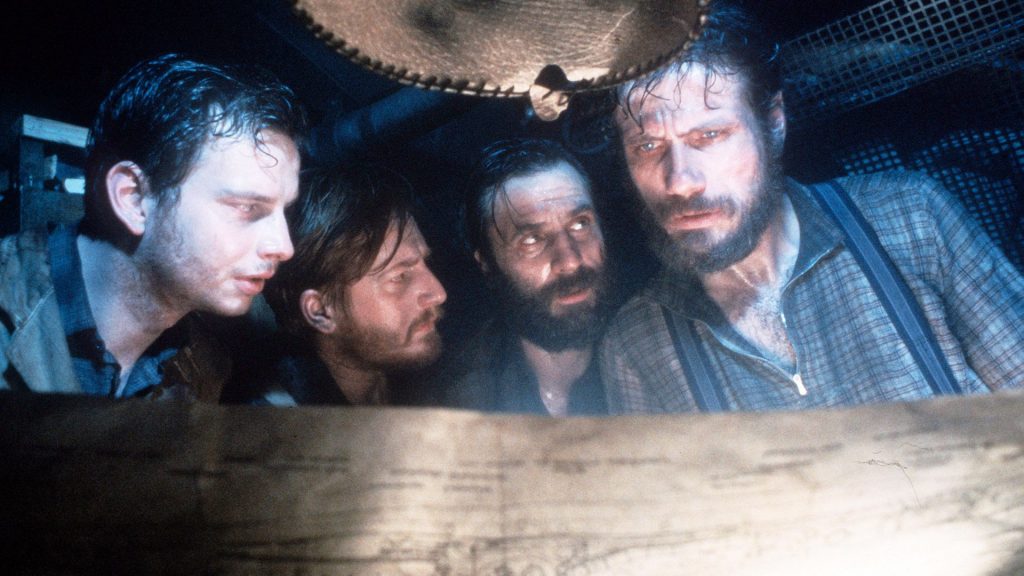
42 Das Boot (1981) Classic submarine WWII drama starring Jurgen Prochnow and musician Herbert Gronemeyer sees U-96 patrolling the Atlantic and Mediterranean to destroy British boats. Boredom, exhaustion and the futility of war gradually bringing the crew to despair.
41 The Death of Mr Lazarescu (2005) Darkly brilliant satirical portrait of uncaring post-communist Bucharest. A dying man in an ambulance is refused treatment around the city over one chaotic night, superbly orchestrated by director Cristi Puiu.
40 Goodbye Lenin (2003) Ingenious comedy about a son concealing the fall of the Berlin wall from his fiercely committed socialist East German mother who fell into a coma in early 1989 and wakes up in a new world awash with Western consumerist symbols.
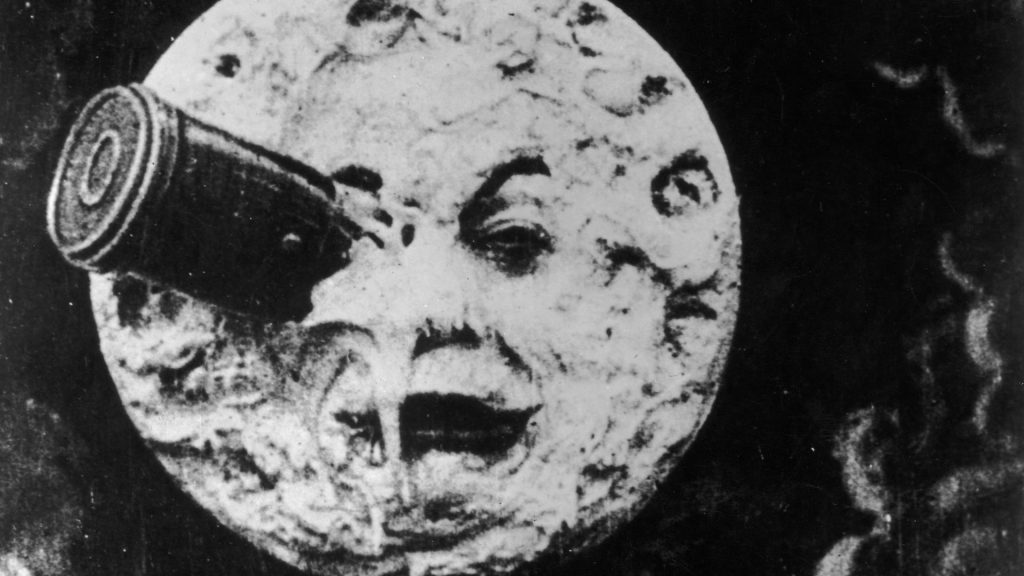
39 A Trip to the Moon (1902) Movies wouldn’t have been the same without George Melies’ short fantasy which brought magic and special effects to a world audience. I recommend the hand-coloured restoration and score by the French band Air from 2011.
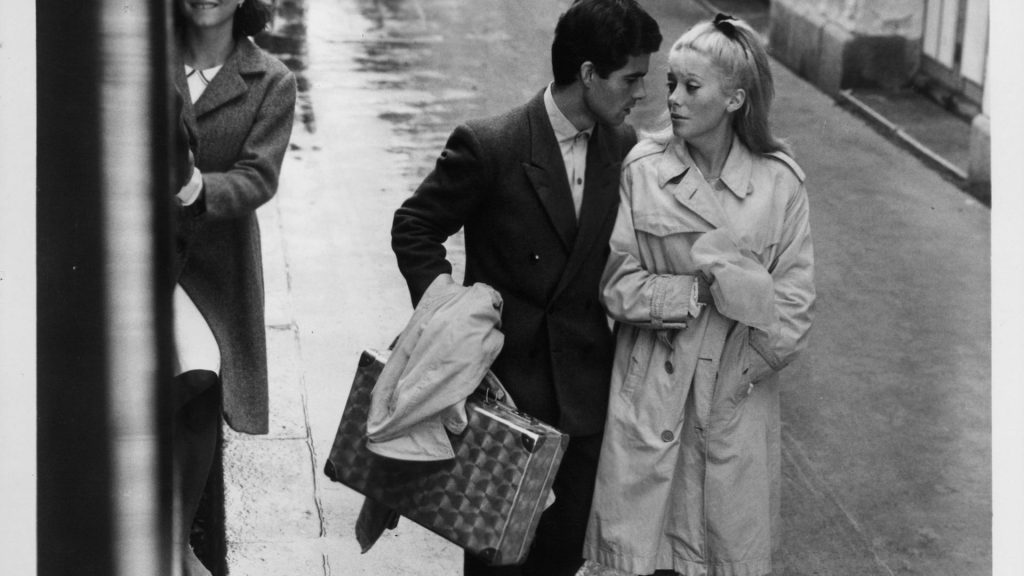
38 The Umbrellas of Cherbourg (1964) Jacques Demy and composer Michel Legrand redefined the European musical using a colourful umbrella shop in a wet coastal town, the fragile beauty of Catherine Deneuve and a realist, sung-through style to transform tragic mundanity into the stuff of dreams.
37 Songs from the Second Floor (2000) Is there a more singular European film-maker than Sweden’s Roy Andersson? Loosely connected tableaux and characters, filmed in breath-holding single takes, build to something inexplicably comic, existentially neurotic and beautifully strange.
36 Mustang (2015) Turkish director Deniz Gamze Erguven’s superb debut looks at the fate of five orphan sisters in a remote village who, banned from contact with local boys, gradually find ways to rebel against tradition.
35 Couscous or La Graine et Le Mulet (2007) Fired from his shipyard job, an elderly Arab man, Slimane, dreams of opening a family restaurant on a disused boat in the port town of Sete. Director Abdellatif Kechiche helms some of the great cooking and dinner scenes and mines tensions between generations of immigrant mentalities.
34 Fear Eats the Soul (1974) Rainer Werner Fassbinder was the prolific powerhouse of 1970s independent cinema and this drama about an older woman (Brigitte Mira) with a Moroccan migrant gastarbeiter half her age (El Hedi ben Salem) was as politically provocative in post-war Germany as it was emotionally and sexually charged.
33 Force Majeure (2014) There’s nothing more European than an Alpine family ski holiday and Swedish film-maker Ruben Ostlund plants his pole right through its heart, from the boot rooms, hotels and cable cars, to one of the great scenes of 21st-century film: an avalanche approaching a mountain restaurant.
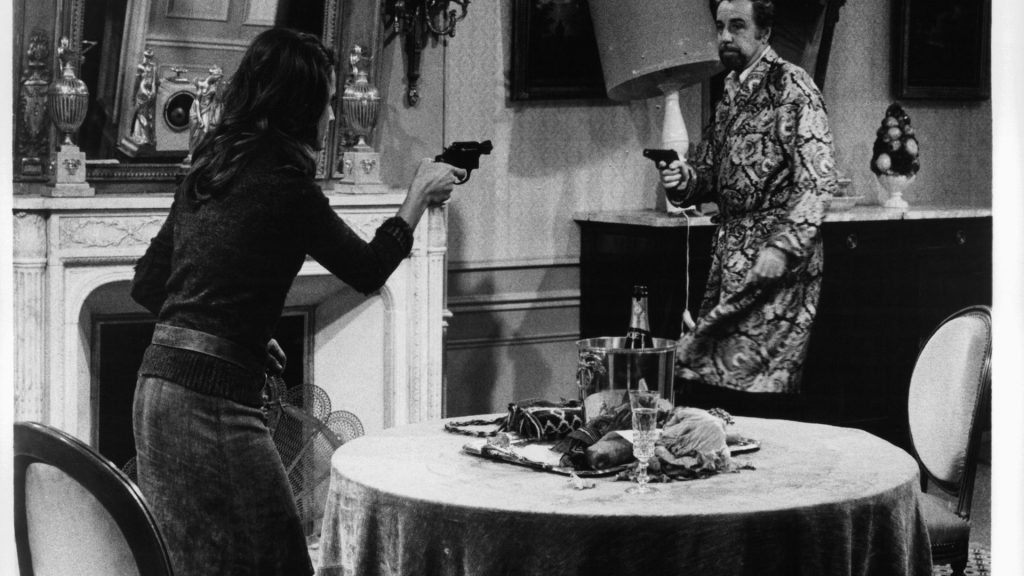
32 The Discreet Charm of the Bourgeoisie (1973) Spanish surrealist Luis Bunuel gets a fine cast to sit down for dinner in France and never get served. Fernando Rey is magnificent, the humour delicious and the poster iconic.
31 Dogtooth (2009) Yorgos Lanthimos launched the Greek New Wave with a deadpan, ice-cool drama about a family sheltering its children from the outside world in a compound. Seen as a satire of and salvation for the stricken Greek economy.
30 La Haine (1995) The original ‘film de banlieue’, Europe’s Do The Right Thing – director Matthieu Kassovitz defined a disaffected generation, re-energised French cinema, and introduced actor Vincent Cassel like Europe’s new De Niro.
29 Black Cat White Cat (1998) While Cannes-winner Underground was more controversial, Serbian director Emir Kusturica’s riotous carnival of Romani life depicts a European world rarely seen, conveyed in a bravura, tumbling, picaresque style. The characters and music are unforgettable, as are the geese and pigs.
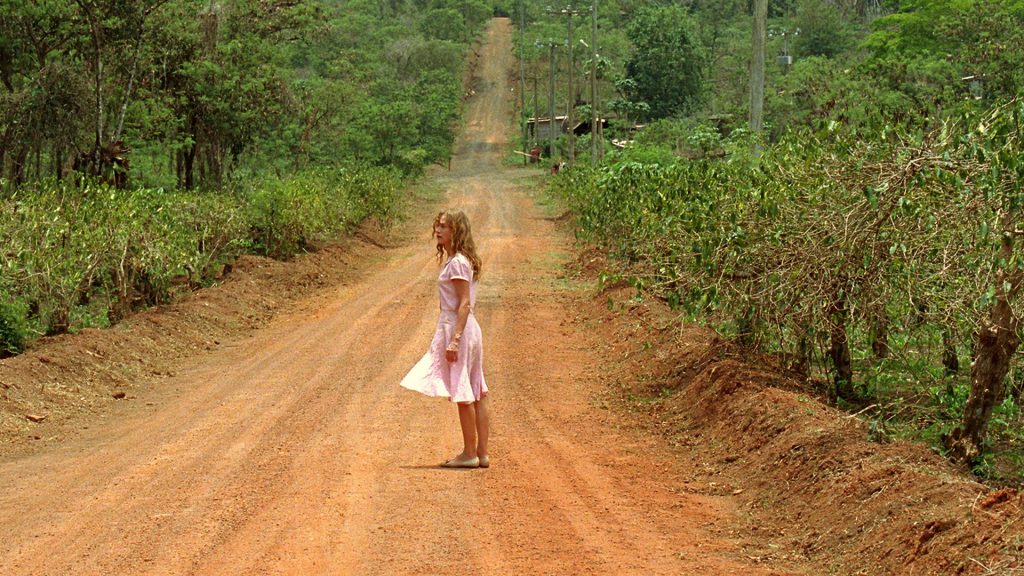
28 White Material (2009) Shining Euro talents, director Claire Denis and actress Isabelle Huppert, combine brilliantly on the post-colonial story of a white woman clinging to her failing African coffee plantation as a civil war breaks out.
27 The Kid with the Bike (2011) Belgian brothers Luc and Jean-Pierre Dardenne are kings of European social realism. Their style and tough subjects can be grim, but I love this lighter-looking heartbreaker, with the charming Cecile de France as a hairdresser taking in a runaway boy.
26 4 Months 3 Weeks 2 Days (2007) Intense, terrifying Palme d’Or winner by Romania’s Cristi Mungiu about two students near the end of the Ceausescu regime seeking an illegal abortion in a hotel room. A chilling turn from Vlad Ivanov as ruthless Dr Bebe.
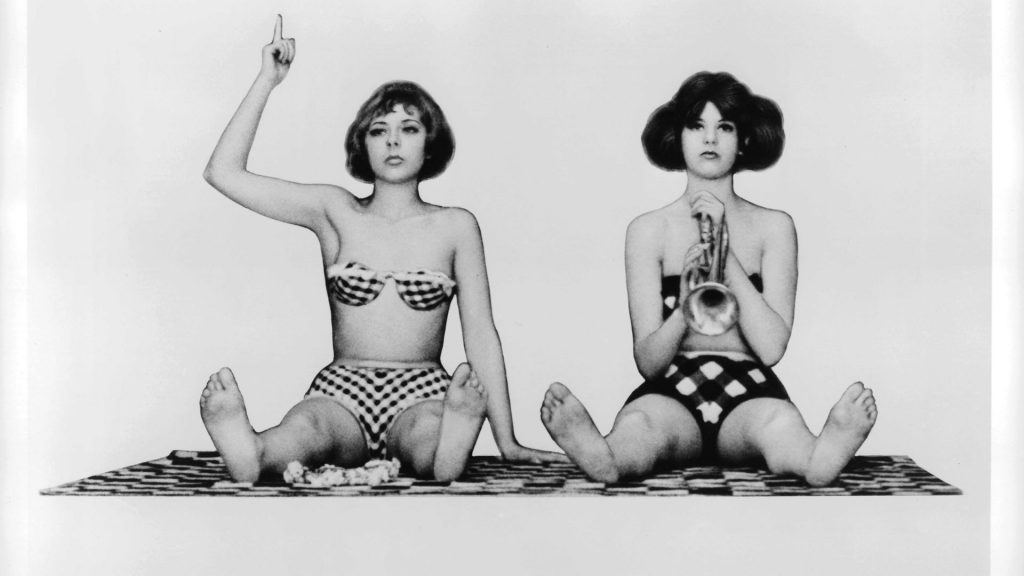
25 Daisies (1966) Neglected delight of the Czech New Wave, Vera Chytilova’s free-wheeling, surreal satire features two young women – Marie i and Marie II – on a delirious rampage and food frenzy. It was banned for “depicting the wanton”.
24 Let The Right One In (2008) Terrific coming-of-age vampire movie from Sweden about a bullied, 12-year-old schoolboy Oskar who befriends strange new neighbour Eli even though she warns him they can’t be friends. And she’s not really a girl. And she’s not really 12.
23 Maradona (2019) Asif Kapadia’s riveting documentary study of the genius, flawed Argentinian footballer focuses on his time leading Napoli’s team out of the rubble to glory – a torrid love affair between a man, a city and cocaine.
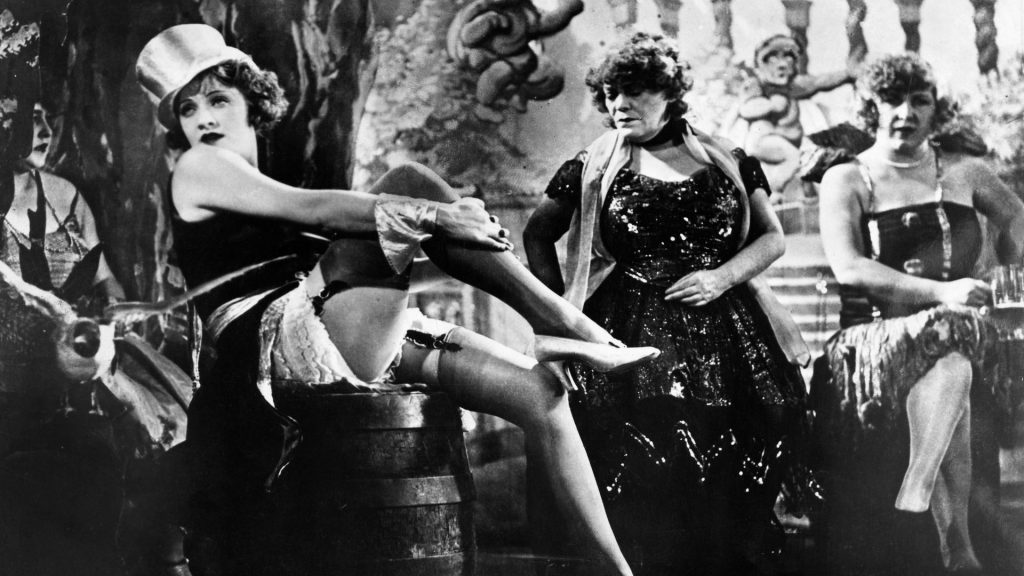
22 The Blue Angel (1930) Taking full advantage of the first German talkie, Marlene Dietrich’s cabaret star Lola sings Falling In Love Again, bewitches respected school teacher Professor Rath (the great Emil Jannings) and becomes an icon.
21 Au Revoir Les Enfants (1987) Among Louis Malle’s many superb films in a remarkable career is this stand-out autobiographical Venice winner, about a Catholic boarding school in occupied France, harbouring fugitive Jewish pupils. The title is one of the great final lines in all cinema.
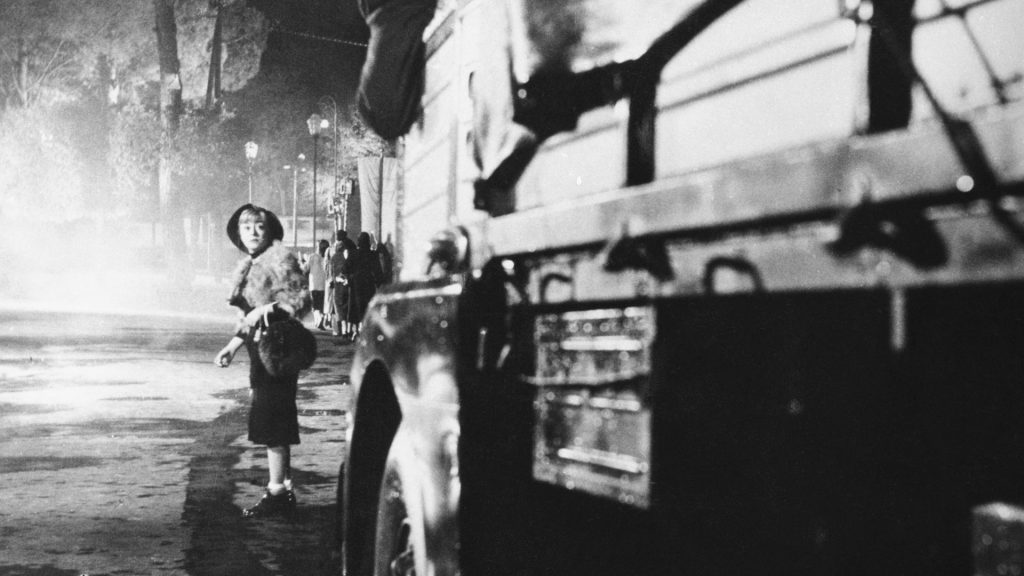
20 Nights of Cabiria (1957) Federico Fellini embodies European film – an ultimately upbeat film that nevertheless puts prostitute Cabiria through the mill (as did the preceding La Strada) – she’s played by the director’s wife, the unmatchable face and physicality of Giulietta Masina.
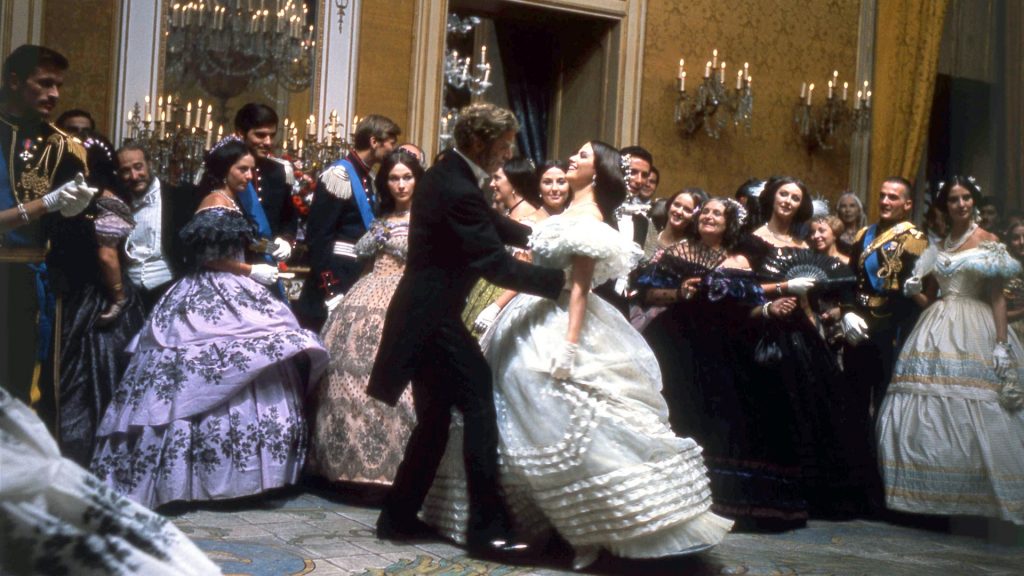
19 The Leopard (1963) Possibly the finest literary adaptation on the list, Luchino Visconti’s long film of Lampedusa’s short novella is set among feuding 19th-century Sicilian princes. Boasts one of the great ballroom scenes and a cast of Burt Lancaster, Alain Delon and Claudia Cardinale.
18 Tabu (2012) A mysterious, magical masterpiece about memory by Portugal’s Miguel Gomes, an elderly woman tracing a love affair through time. Set in Lisbon and colonial Africa, playing with storybook and Hollywood tropes about romance and explorers, it is also dazzlingly beautiful.
17 Festen (1998) The first Dogme film and the most excruciating family gathering ever, Vinterberg juggles subjects of death, incest, guilt and family recriminations during the speeches to celebrate the 60th birthday of patriarch Helge at a country hotel. Became a hit stage play around the world.
16 Talk to Her (2002) Pedro Almodovar could easily fill five or six spots on this list. This romantic double drama of a comatose ballerina, a gored matador and the lovers at their bedsides is one of his most perfect and emotional creations, balanced between melodrama, comedy, fantasy and sex farce.
15 The Lives of Others (2006) Oscar-winning, 1980s-set drama about a Berlin Stasi agent ruthlessly spying/prying on a playwright and his mistress. Features a defining final performance by East German actor and former Berlin Wall guard Ulrich Muhe.
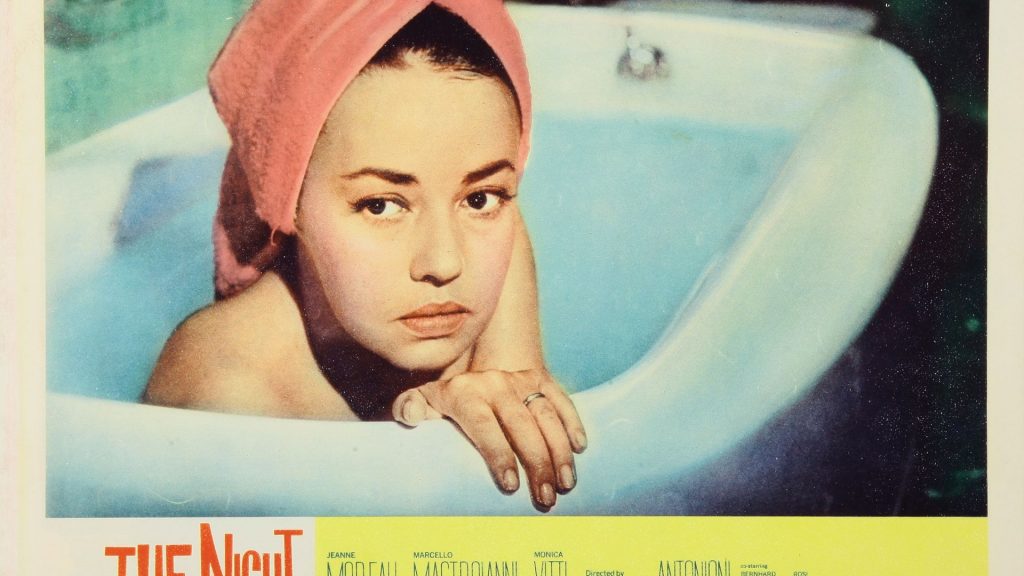
14 La Notte (1961) Exquisite, alienating and haunted, Michelangelo Antonioni’s Milan-set film made him a giant of 60s mysterious, modernist cinema. Marcello Mastroianni and Jeanne Moreau are the beautiful urban couple adrift but alone in success and parties.
13 Together (2000) (Tilsammans) Joyous, warmly satirical recreation of the hippie commune ideal that took hold in 1970s Scandinavia, featuring games of Pinochet torture, a kid named Tet (after the Vietnam offensive) and the most utopian ever argument over washing up. Yes, there is some Abba.
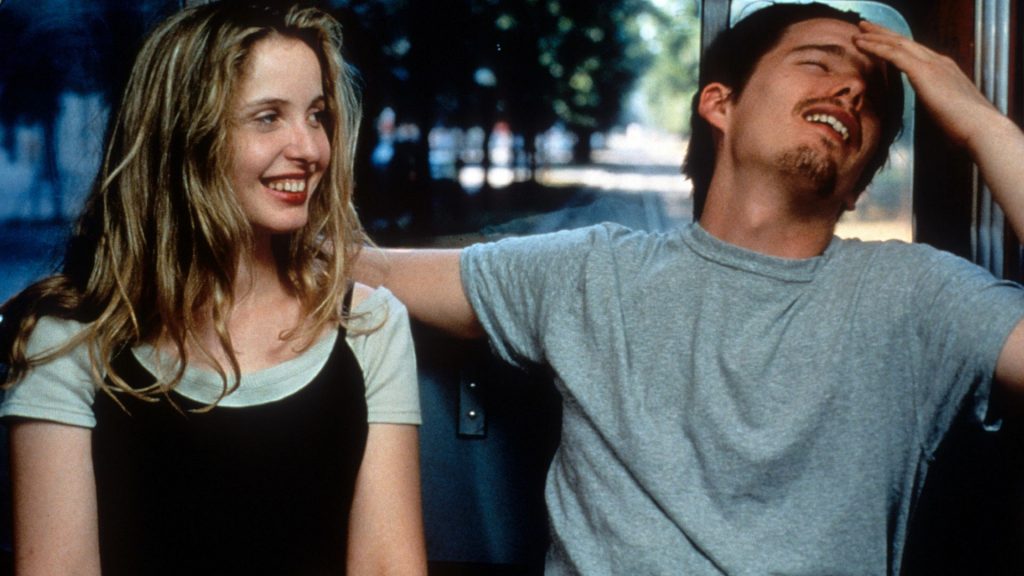
12 The Before Trilogy (Before Sunrise 1995 /Before Sunset 2004 /Before Midnight 2013) – In the definitive post-modern, arthouse rom-com, American Richard Linklater traces on/off couple Jessie and Celine (played by Ethan Hawke and Julie Delpy) in Vienna, Paris and Greece over three days, three different decades, nine years apart.
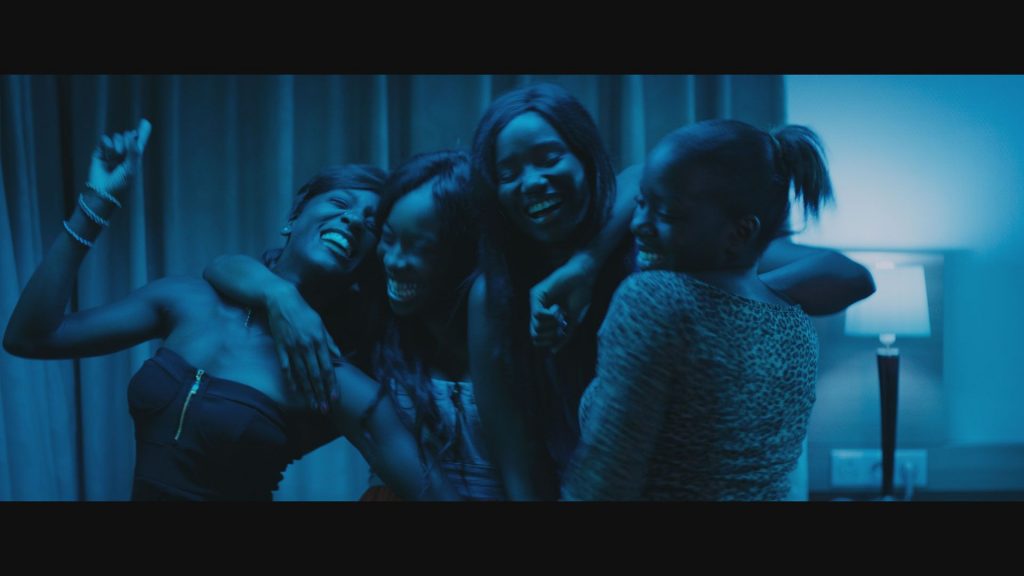
11 Girlhood (Bande de Filles) (2014) Celine Sciamma emerged as Europe’s leading feminist film-maker with this powerfully uplifting study of female friendship, peer pressure and girl gangs in the Paris suburbs. Made culture-changing covers stars of its black cast, including Karidja Toure.
10 Hidden (2005) Austere Austrian Michael Haneke, one of Europe’s most formidable directing talents, attained a level of gripping, masterly control working with Daniel Auteuil and Juliette Binoche as a Parisian media couple who learn their lovely townhouse is being watched and filmed. Meticulously layering tension, Haneke scratches away at bourgeois guilt and post-colonial cover-up, culminating in one of the most violently shocking acts in European film.
9 Eden (2014) Like a 21st-century myth of the lotus eaters, no film better captured the hedonism, optimism and listless youth of Europe’s booming late- 90s club scene. Set among Paris DJs, Mia Hansen Love delivers an intimate, insider portrait of the influential ‘French Touch’ movement, a sound that went around the world led by pioneer duo Daft Punk. Their ghosts haunt a film of faded dreams and ecstatic moments, boasting the best soundtrack on this list.
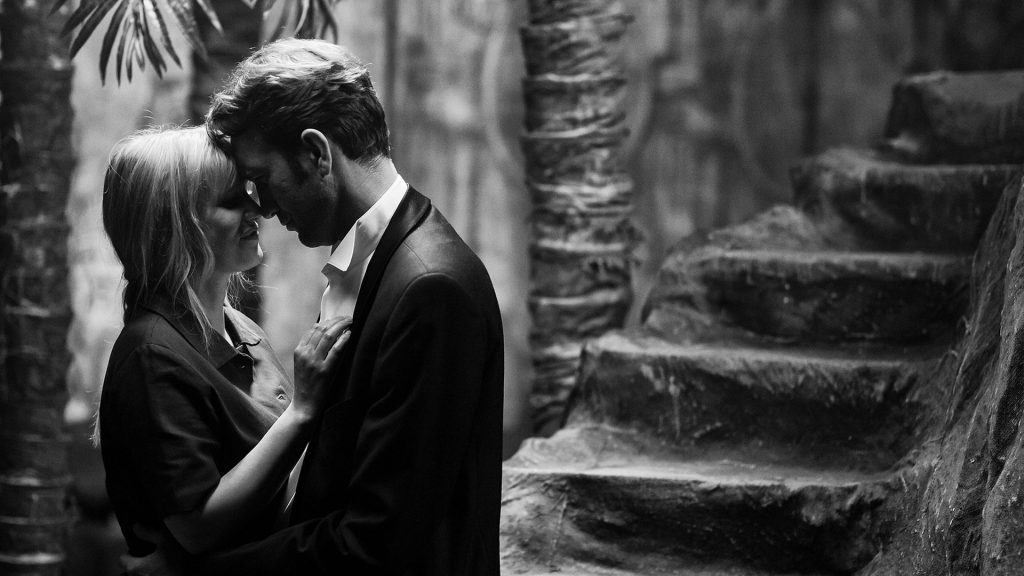
8 Cold War (2018) Although his previous film Ida won the Oscar, director Pawel Pawlikowski arguably made more emotional impact with this beautiful black and white hymn to love across the divide in the time of European political turmoil. Loosely inspired by his parents and set in Paris and Poland, it features music from folk to rock n roll and jazz, made a star of actress Joanna Kulig, and won Best Film at the European Film Awards.
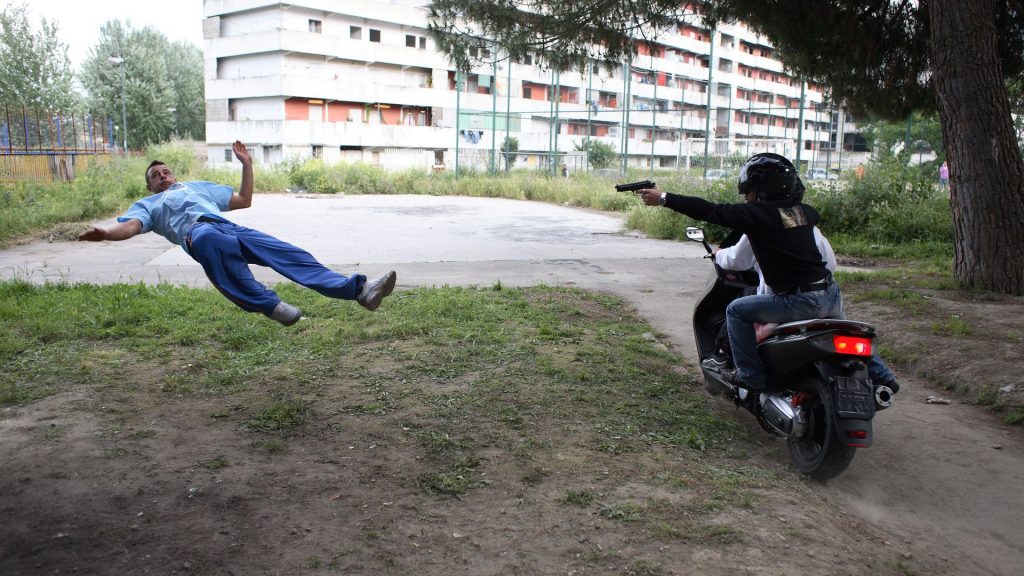
7 Gomorrah (2008) Before the hit TV shows, this film lifted the lid on modern organised crime and its inextricable tentacles stretching from Naples around Europe and the world. Based on Roberto Saviano’s non-fiction book (the author went into hiding), Matteo Garrone’s movie looks like a documentary but its sprawl of stories, armed teens in underpants and scenes of crumbling housing estates created indelible, era-defining cinema.
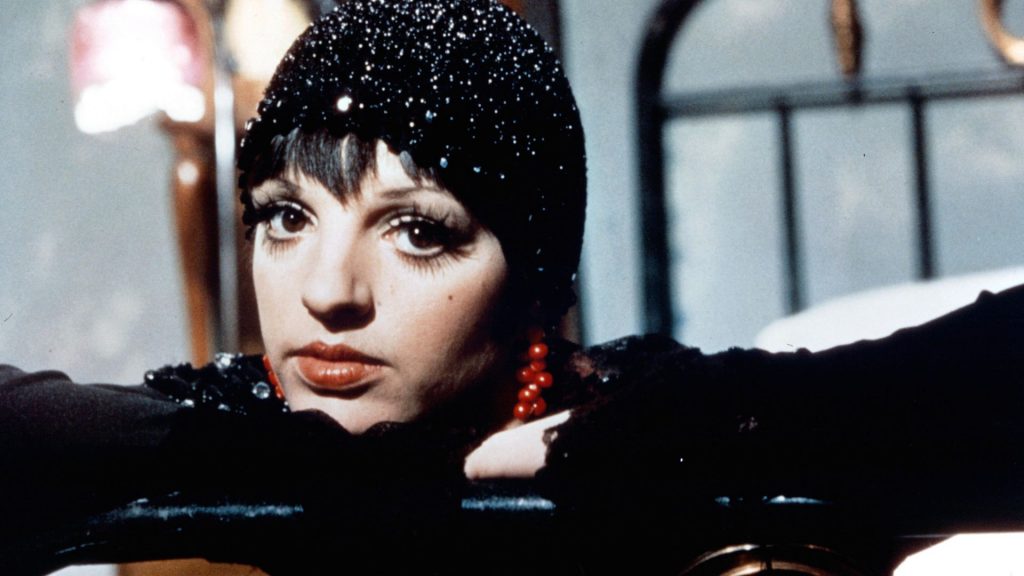
6 Cabaret (1972) Wilkommen, bienvenue, welcome – Bob Fosse’s masterpiece of a musical (based on Christopher Isherwood’s stories of Berlin life) nailed a unique European atmosphere and zeitgeist with its satirically louche scenes in the Kit Kat Club presaging the rise of Nazism outside: Money Makes the World Go Round is as chilling as Tomorrow Belongs To Me.
5 Faces Places (2017) A delightful, invigorating documentary from Agnes Varda who, at 88, kept that nouvelle vague spirit alive but lent it the humanist heart and twinkling, mischievous charm that personified the works of this unique film-maker. Collaborating with hipster photographer JR, she documents working lives in dwindling communities in an age of globalisation, stamping whole villages with identity, belonging and pride.
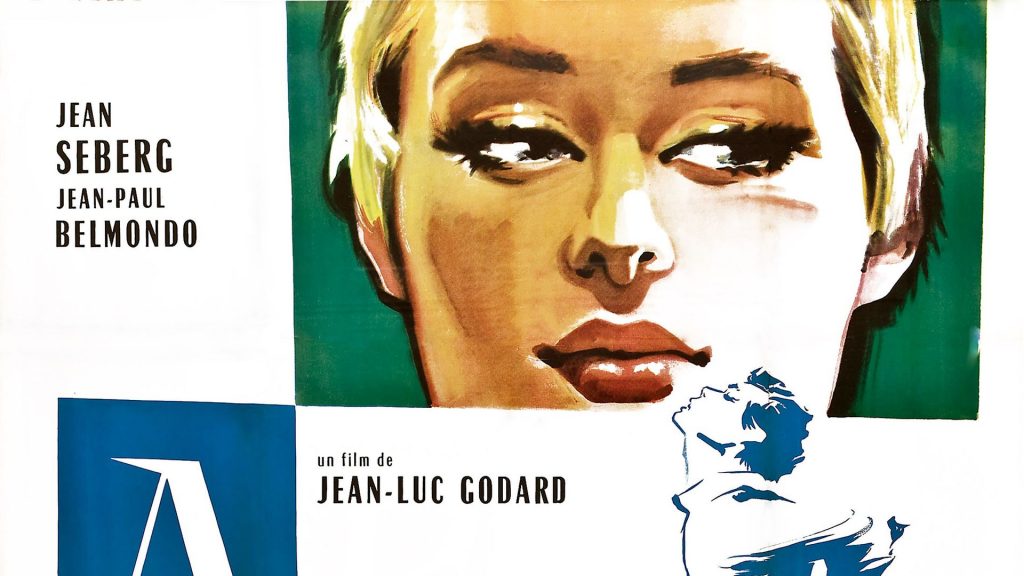
4 A Bout de Souffle (1959) The game-changer. Cinema was never the same after Jean Luc Godard’s New Wave study in style hit the Paris streets, a low budget experiment that became an enduring touchstone. Jean-Paul Belmondo is the hood on the lam (breathless from running, or from smoking?), Jean Seberg sells the Herald-Tribune on the Champs Elysees. From jump cuts to haircuts, it’s possibly the most influential film ever.
3 Leviathan (2014) Andrei Zvyagintsev ascends to the very top ranks with a bleak but mighty and beautiful satire on state corruption in Putin’s Russia, shown through the struggles of a fisherman to keep his family’s rural property from the hands of a gluttonous local mayor. Whacks you like an empty bottle of vodka. A hard call between this and the director’s more urban follow-up,
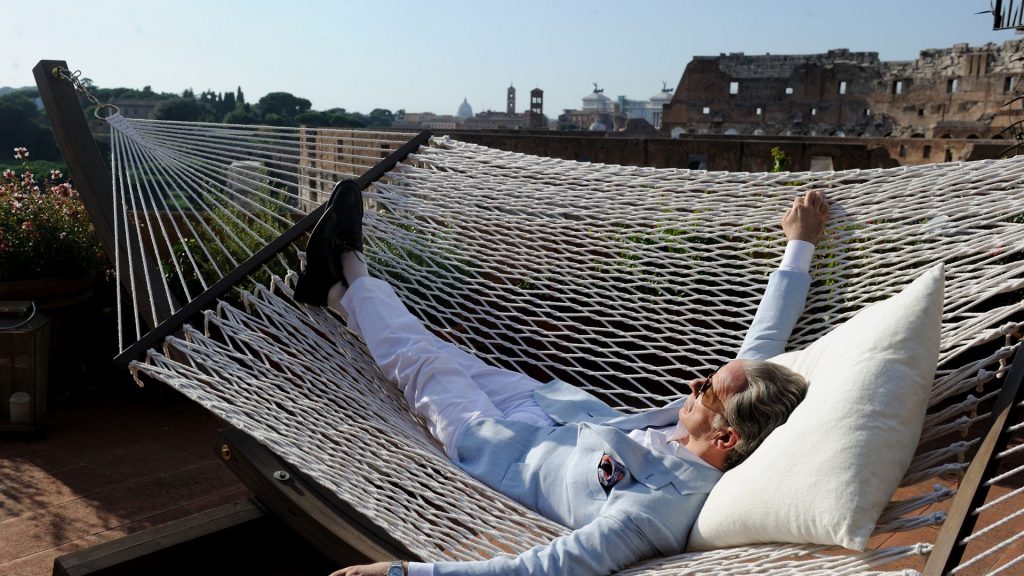
2 The Great Beauty (2013) The decadent, faded “dolce vita” of old Europe is exquisitely, lasciviously captured by Paolo Sorrentino’s film and chronicled by Roman journalist Jep Gambardella (the creation of actor Toni Servillo) who clings to his privileged existence to search for meaning in a whirl of guilt, religion, sex, art and irony.
1 A Prophet (2009) Jacques Audiard’s arthouse prison drama draws on French, Italian, Arab and Hollywood cinema for the perfect European cocktail of style, crime and immigrant ambition. Playing many parts, Tahar Rahim’s young Muslim inmate Malik survives, murders and mutates under the power of Corsican mob boss Cesar (an unforgettable Niels Arestrup).
***
A Prophet, Girlhood and Gomorrah are available on DVD and BluRay via STUDIOCANAL
120 BPM, Cold War, The Great Beauty and White Material are available on DVD and BluRay via Curzon Home Cinema
What have we missed? Send your suggestions to letters@theneweuropean.co.uk


